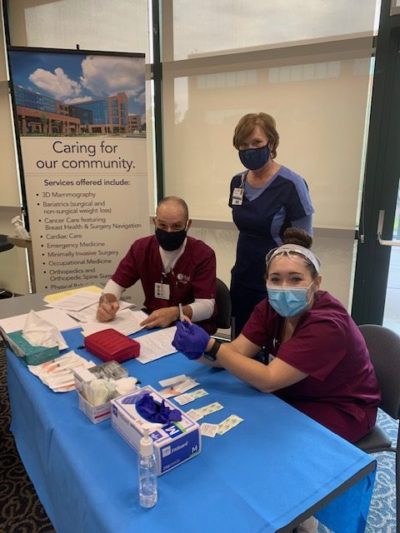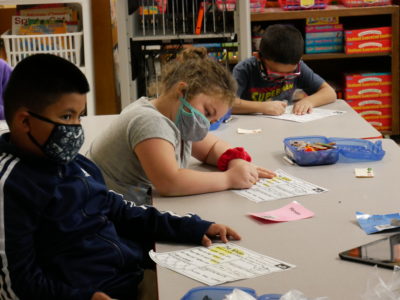
North Carolina is ringing in the new year with a new COVID-19 variant. Omicron is thought to be more infectious, according to the Centers for Disease Control and Prevention (CDC), and as of late December 2021 was in almost every part of the United States.
“As we close in on two years dealing with COVID-19, I know many of you are tired and weary,” said Gov. Roy Cooper during his first COVID-19 press conference of 2022 on Tuesday.
There are a host of other new developments when it comes to COVID-19. Here is what you need to know.
Omicron
Part of the reason omicron is more infectious is that it can “evade immunity conferred by past infection or vaccination,” according to the CDC. Early data suggest that omicron may be less severe than the delta variant or the original virus that causes COVID-19.
Because of this, the CDC shortened its recommendations on isolation — those with COVID-19 should isolate for five days “if they are asymptomatic or their symptoms are resolving.” After that, those who have had COVID-19 should wear a mask for five days after isolation when around other people.
The CDC said the revised recommendations are due to the current understanding that transmission of the virus that causes COVID-19 happens early in the illness.
“The Omicron variant is spreading quickly and has the potential to impact all facets of our society. CDC’s updated recommendations for isolation and quarantine balance what we know about the spread of the virus and the protection provided by vaccination and booster doses,” said CDC director Rochelle Walensky in a press release. “These updates ensure people can safely continue their daily lives. Prevention is our best option: get vaccinated, get boosted, wear a mask in public indoor settings in areas of substantial and high community transmission, and take a test before you gather.”
NC Public Health Toolkit update
The state Department of Health and Human Services (DHHS) updated its StrongSchoolsNC Public Health Toolkit, incorporating the revised recommendations from the CDC, and recommending vaccination boosters as a key COVID-19 prevention strategy.
According to a Dec. 30, 2021 press release from DHHS, 89% of COVID-19 patients in intensive care were unvaccinated. Meanwhile, that day marked the state’s highest one-day number of COVID-19 cases up to that point. The state broke that record the very next day.
“We are concerned that even a very small proportion of these cases ending up in the hospital could overwhelm our hospital system and increase the loss of lives of those most vulnerable,” said Kody H. Kinsley, the new state DHHS secretary replacing Dr. Mandy Cohen, in a press release. “Everyone can help save lives and protect hospital capacity by getting vaccinated if you haven’t already and getting boosted if you are eligible.”
During today’s press conference, Cooper said he was extending an executive order that requires vaccination or COVID-19 testing of state workers.
Testing study
The ABC Science Collaborative, coordinated by the Duke University School of Medicine and the Duke Clinical Research Institute, released a new report in December 2021 that says that children and school staff who “repeatedly test negative for COVID-19 after contact with someone who has the illness can safely remain in school if universal masking programs are in place.”
The study states that this can be used as an alternative to quarantining people who have been exposed.
Watch a media briefing on the report below:




